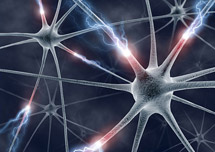
Malleability of intelligence refers to beliefs about the nature—and particularly the flexibility—of intelligence. While intelligence has been much studied within the fields of biology, genetics, psychology, and the learning sciences, there is no universally accepted definition of what exactly constitutes “intelligence.”
But we now know much more about what shapes intelligence. We know that people regard intelligence either as being fixed—something that is unchangeable and characteristic—or being malleable—something that can be changed. How people view the malleability of intelligence matters a great deal in education. Students who believe intelligence is fixed typically think that needing to expend effort to learn indicates low intelligence. When students with a fixed view of intelligence encounter a concept that they do not immediately and effortlessly understand, they typically believe that they are incapable of mastering it and thus expend less effort to learn.
Consider, for a moment, the effect of a belief in fixed intelligence on educators. If intelligence is fixed, it is impractical and unproductive to keep trying to educate students when they struggle. Teachers who are unaware of the advances in neuroscience regarding malleability of intelligence often believe students’ intelligence is fixed, and thus they view struggle as failure instead of a critical part of learning. Research shows that students can learn more with persistent effort from those who educate them—and indeed from the sheer conviction of adults that their capabilities can grow.
When students are taught about the malleability of intelligence, they can come to see intelligence as increasing with effective effort and hard work. Students who believe their intelligence can increase typically have more positive attitudes, greater enjoyment of academic tasks, and stronger learning goals.
Consider these characterizations of fixed and growth mindsets from Carol Dweck, a Stanford University professor who has conducted 30 years of research into self-beliefs and mindsets:
“In the fixed mindset, people believe that their talents and abilities are fixed traits. They have a certain amount and that’s that; nothing can be done to change it. Many years of research have now shown that when people adopt the fixed mindset, it can limit their success. They become over-concerned with proving their talents and abilities, hiding deficiencies, and reacting defensively to mistakes or setbacks-because deficiencies and mistakes imply a (permanent) lack of talent or ability. People in this mindset will actually pass up important opportunities to learn and grow if there is a risk of unmasking weaknesses.”
“In the growth mindset, people believe that their talents and abilities can be developed through passion, education, and persistence. For them, it’s not about looking smart or grooming their image. It’s about a commitment to learning–taking informed risks and learning from the results, surrounding yourself with people who will challenge you to grow, looking frankly at your deficiencies and seeking to remedy them. Most great business leaders have had this mindset, because building and maintaining excellent organizations in the face of constant change requires it.”

We all have the ability to change our intelligence. Click here to see a clip from the BBC documentary, The Human Body, which demonstrates how learning creates new neural pathways in the brain.